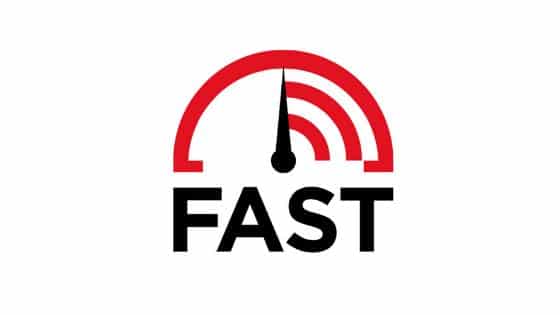One breakthrough technology that is making a lot of buzz in the digital arena is the “LiFi.” It sounds similar to WiFi, isn’t it? However, both of them are completely different technologies to work with. Light Fidelity technology, aka LiFi, uses LED bulbs and lightwaves to transmit & receive data. Where else, WiFi uses routers and radiofrequency.
Table of Contents
Some amazing facts to fascinate you with this new wave of technology are:
- With LiFi, the bandwidth is expected to increase by 100 times;
- In the testing stage, LiFi achieved 1 Gbps results;
- It proves to be a highly stable, robust, and fast connection so far;
- The top speed achieved is 224 Gbps!! Whoa!! You can easily download 28 films of 1GB in one second (that’s quite a big number to achieve).
We understand that you will need a moment to sink into the buzzing speed of this break-through technology. Don’t worry; take your time. Meanwhile, we will describe the technology at length for you to better understand in this write-up. Keep reading…
Check Also: 5 Tips to find the best Audiologist in Vancouver
What is LiFi?
This promising technology was an outcome of the fact that WiFi networks underwent congestion not only in India but across the globe. We can not be more thankful to Professor Harald Haas from the University of Edinburgh, who coined the term back in a TED talk in 2011.
He started with an intention to prove that light bulbs could act as a wireless router and, at later stages, gave the proof of the same. He confirmed that a single LED bulb could deploy more data than a cellular tower. However, after four years of deep research, he was able to set up a company named pure LIFi with the aim of being the leader of light communication technology.
Check Also: Amazing Benefits of Embed Instagram Widget on Your Website
Do you wish to know how this amazing technology really works? If yes, keep reading…
LiFi uses a wireless protocol using the visible light spectrum. Inside the LED bulb, a signal processing technology is fitted in which transmits data in the beam at supersonic speed and passes on to the photo-detector. A dongle further converts these changes in the light amplitude into electric signals. These signals are converted back into the data stream and transmitted to the computer or a mobile device. The chip inside the LEDs control the output and can modulate up to millions of times per second. Similar to WiFi, LiFi also transmits data electromagnetically but using Visible Light Communication (VLC). An LED light is a semiconductor of electricity; the light bulb can be amplified and dimmed at a swift speed difficult to be perceived by our eyes.
In the next section, we have listed some basic differences between LiFi and WiFi, which will help you to understand the technology better.
| Feature | LiFi | WiFi |
| Speed | Greater than 1Gbps | 150 Mbps |
| Transfer means | LED lightbulbs | Radio waves |
| Operating frequency | 100 Terra Hz | 2.4 GHz, 4.9 GHz, 5 GHz |
| Cost | Because of the free bands that do not require licensing, LiFi is much cost-effective technology as compared to WiFi | Since it uses radio frequencies that |
| Privacy | This is the most secure way of data transmission because the light will be blocked by the walls | You need to employ other techniques to secure the data transfers because RF signals can not be blocked by the walls |
| Area of application | LiFi can be used in airlines, hospitals, offices, and residential homes for internet usage. | WiFi is used in WiFi kiosks or hotspot for internet transmission. |
| Bandwidth | Exceptional | Limited |
How does LiFi overrule WiFi?
It looks like LiFi is a good alternative to WiFi, which will surpass all the limitations of WiFi for internet usage. Do you wish to know how it will overrule the limitations?
Check Also: How To Use The Power Of AI In PCB Manufacturing
Radiations:
WiFi uses radio waves that communicate with each other through transmitters, which consume a lot of energy. On the contrary, LiFi used LED lights and no such harmful radiations for transmission. This is a major plus point where LiFi wins over WiFi.
Speed:
Since the data transfers happen through a photodiode and LED, LiFi is able to deliver a speed of 224 Gbps. On the contrary, WiFi can deliver a maximum speed of 100 Mbps. The reason behind the expeditious speed is the spectrum range. The visible light spectrum is 1000 times larger than the RF spectrum range.
Scope of coverage & security:
Radiofrequency waves used by WiFi can pass through walls allowing the signals to reach up to a distance of 32 meters. However, the visible light is restricted by walls, and hence the coverage is limited to a specific room only where the LED transmitters are installed.
This can be considered as a plus point, as well as a negative point of LiFi. Since the radio waves are restricted by the walls, the outside interferences are limited, which is an ideal condition to maintain privacy. On the other hand, WiFi signals have maximum interferences that hamper the security of the data transfers.
Data congestion:
Due to a lack of radiofrequency waves, the transfer of high volume data leads to data congestion. This slower the speed of the transfer, and they have to work in a very dense environment. LiFi uses LEDs, and hence it is not subjected to any kind of limitation to data congestion.
In the future, some immense benefits of using LiFi technology would be discovered. Some promising applications of LiFi router are in the field of traffic management, medical applications, Aviation, Lighting, map reading system of blind people, transportation, and many more.
Check Also: How B2B Companies Can Become More Engaging Online for Their Clients





